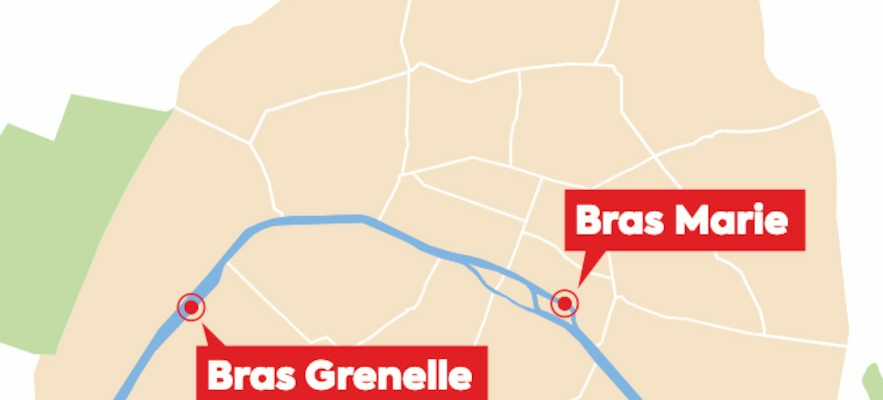A relieved smile, the courtesy of a senior official. Marc Guillaume, the prefect of the Ile-de-France region, welcomes us in his city suit a few days before the start of the Olympic Games. A large office with a panoramic view of the Seine. That’s exactly what we’re going to talk about. On July 17, the senior official immersed himself in it, with Anne Hidalgo and Tony Estanguet. Proof by example that the river is now suitable for swimming. Soon, the public will also be able to splash around. A happy outcome of a seven-year battle waged by the prefect who keeps the cover of the American magazine like a trophy Time title “Saving the Seine”, [NDLR : la Seine ressuscitée]The Olympics have a knack for making what seemed impossible seem possible. Behind the scenes, Marc Guillaume is trying to take advantage of the competition to move forward on the most complicated issues. Contrary to those who talk about a “social cleansing” in Paris, he claims that more than a hundred homeless people have been sheltered.
L’Express: The Seine is now swimmable on certain days. Will it remain so after the Olympic Games or was it just a short-lived feat, for the duration of the competition?
Marc Guillaume: The Seine will remain swimmable in the summer. There are conditions. The river will not necessarily be swimmable every day, it will be like being at the seaside when you have a red flag. It will probably not be swimmable on the days following violent storms, simply because the infrastructure we use can only store a certain amount of water. But in so-called “normal” summer conditions, everyone will be able to swim in the Seine from the summer of 2025. It is a great source of pride to have resurrected it. The three swimming spots that we have already selected in Paris, with the city hall, are located at the Marie arm (4th arrondissement) opposite the Île Saint-Louis on the right bank, at the Grenelle arm (15th) between the port of Grenelle and the banks of the Île au Cygnes, and at Bercy (12th) opposite the National Library of France. There should be many others, particularly in Val-de-Marne, where many mayors are very committed to this, and in Seine-Saint-Denis.
© / Map legends
How can you reassure residents who, despite your announcements, fear becoming ill after diving into the Seine?
We can recall the in-depth work accomplished since 2017 to achieve this result, which will have cost 1.4 billion euros of investment, including 700 million from the State. In 2017, we said to ourselves that we had to complete two thirds of the planned decontamination actions to make the Seine swimmable. We managed to complete 75% of these actions. We brought our two disinfection units at the water treatment plants up to standard, we built five infrastructures to retain water, including the Austerlitz basin. We also modernized nearly 10,000 pipes: this was not the case before but now, rainwater and wastewater pipes are strictly separated. Only rainwater is then discharged into the Seine.
In Yvelines, for example, the Seine will not be swimmable immediately. Why?
In view of the Olympic Games, we have focused on Paris and the departments located upstream. In the departments located downstream, the decontamination work remains in progress. It will continue, it is a project that the State supports.
Several associations claim that the organization of the Olympic Games is giving rise to a “social cleansing” in Paris. What do you say to them?
This makes no sense. I have set a principle: that all homeless people displaced during the Olympic Games, because they are used to sleeping at a venue, to be clear, should be rehoused. This is normal, we are the ones asking them to make room. To convince them, it is difficult work, which we carry out with associations. Some say no, they prefer to go and sleep elsewhere on the street. But we are having great success. In Paris, we have cleared more than 200 places and around forty places in the suburbs. More than 130 very marginalized people have already been rehoused in apartments. We pay the rent to social landlords. The goal is for them to then keep this housing. Thanks to Paris 2024, we will have gotten them off the streets. This will be the social legacy of the Olympic Games.
.
